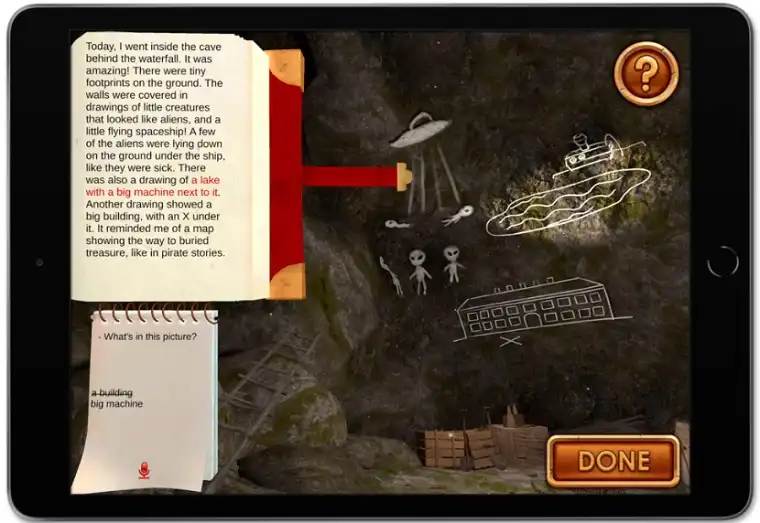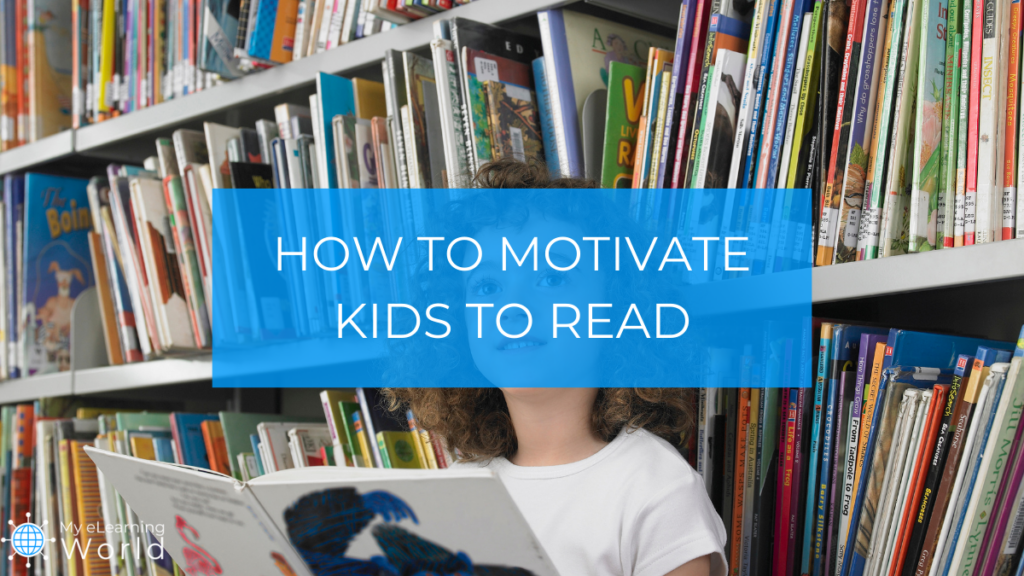Do you find yourself struggling to ignite that spark of enthusiasm for reading in the hearts of children? Wondering how to help kids find their reading motivation?
In this day and age, it’s not always easy to keep kids hooked on books when they have so many distractions vying for their attention. Enticing screens often overshadow the magic of books.
But the fact remains that helping kids find their reading motivation is a transformative journey that holds the key to unlocking their full potential. The importance of cultivating a genuine love for reading cannot be overstated.
It’s not just about excelling in academics; it’s about nurturing the foundation for lifelong learning, curiosity, and empathy.
A child who finds joy in books embraces a world of endless possibilities, from soaring through the realms of imagination to gaining insights into diverse cultures and perspectives.
Helping kids become passionate readers sets them on a path to becoming empathetic, informed, and confident individuals.
In this guide, we’ll delve into proven actions and delightful ideas that will make reading an irresistible adventure for your children.
Disclosure: Some of the links in this article are affiliate links, meaning at no additional cost for you, we might get a commission if you click the link and purchase.
The Significance of Reading Motivation
Before we delve into how to help kids find reading motivation, you must understand the significance of developing a regular reading habit. Reading is not just about acquiring knowledge or improving language skills; it plays a crucial role in shaping various aspects of a child’s life.
- Develops social skills: Reading can be a social activity that promotes interaction and discussion. When children discuss books with their peers, parents, or teachers, it enhances their communication and listening skills. They learn to express their thoughts, listen to different perspectives, and engage in meaningful conversations.
- Enhances creative and cognitive skills: Reading sparks imagination and creativity as children visualize scenes and characters in their minds. It stimulates their creativity, encouraging them to think outside the box and get unique ideas. Additionally, reading exercises their cognitive abilities, such as memory, attention, and problem-solving, as they follow storylines, make predictions, and connect information.
- Reduces unnecessary brain noise: In today’s fast-paced and information-saturated world, reading provides a respite from constant digital stimuli. Immersing oneself in a book helps reduce brain noise by promoting focus, concentration, and mindfulness.
- Broadens knowledge and vocabulary: Reading exposes children to ideas, information, and perspectives. It expands their knowledge base and helps them develop a richer vocabulary.
- Builds confidence: Reading opens doors to self-discovery and personal growth. It exposes children to a range of characters, cultures, and experiences, helping them understand themselves better and build a sense of identity.
5 Effective Strategies to Foster Kids’ Reading Motivation
1. Provide Access to a Variety of Reading Resources
A diverse range of reading resources that cater to their interests and reading levels should be readily available for the kids. It helps create an environment that encourages exploration and discovery.
Firstly, it’s important to have a well-stocked library or reading corner where children can easily access books. It can be in a classroom, school library, or even at home. The space should be inviting and organized, with books displayed appealingly. Consider incorporating cozy seating, colorful book displays, and attractive book covers to capture their attention.
When selecting books, consider the diverse interests and reading levels of the children. Offer a mix of fiction and non-fiction books covering various genres, such as adventure, fantasy, mystery, science, and history. Including books featuring diverse characters and perspectives is also crucial for fostering inclusivity and promoting empathy.
Additionally, consider incorporating multimedia resources such as audiobooks and e-books. Audiobooks can be a fantastic way to engage reluctant readers or those who struggle with decoding skills. E-books, on the other hand, can provide interactive features that enhance the reading experience and make it more engaging for tech-savvy children.
When providing access to a variety of reading resources, it’s worth considering the inclusion of reading apps like Lou Adventures. Lou Adventures is an interactive reading program that combines storytelling and gameplay to enhance children’s reading skills in a fun and engaging way.
With Lou Adventures, children can embark on exciting adventures through captivating storylines while improving their reading abilities. It’s perfectly suitable for kids in grades 2-4.
Take a look at our Lou Adventures review for more details or click here to try it for free.
 Lou Adventures: An Interactive Learning Story for Kids
Lou Adventures: An Interactive Learning Story for Kids
Lou Adventures is an interactive learning story for kids that helps them improve their reading skills through a fun, adventurous game.
2. Make Reading a Shared Activity
Encouraging a reading routine where you read together with your child can have numerous benefits. Consider incorporating a designated reading time or making it a bedtime tradition. When children engage in activities together with their parents, they often experience a heightened sense of enjoyment and connection.
Sharing the reading experience allows you to bond with your child on a deeper level. It creates a special time for you to connect, discuss storylines, and explore the characters and themes together. By actively participating in the reading process, you demonstrate to your child that reading is not just a solitary activity but a shared and enjoyable experience.
During these shared reading moments, you can take turns reading aloud, allowing your child to practice their reading skills while also fostering their listening comprehension. Encourage discussions about the story, characters, and emotions to further engage their critical thinking and communication skills. Your active involvement and genuine interest in their reading choices will also motivate and inspire them to continue exploring books on their own.
3. Set Reading Goals and Rewards
Setting reading goals and providing rewards can be powerful motivators for children to stay engaged in their reading journey. By establishing achievable goals, you create a sense of purpose and accomplishment that drives their reading motivation and helps them quickly build their reading skills.
To implement this strategy effectively, start by defining clear reading goals together with your child. These goals should be specific and attainable, taking into consideration their reading abilities and interests.
When your child reaches a reading milestone or completes a goal, it’s time to celebrate their accomplishment. Consider providing rewards as a way to recognize their efforts. Rewards can be as simple as earning stickers for each book read or planning special outings related to their favorite stories.
In addition to tangible rewards, you can also incorporate small surprises and treats as tokens of appreciation for your child’s reading efforts. Consider hiding treats or small notes of encouragement within the pages of their books as a delightful surprise waiting to be discovered.
By the way, if you’re looking for an interactive and engaging way to track your child’s reading achievements and progress, consider using Lou Adventures.
Lou Adventures offers a convenient Parent Dashboard that allows you to monitor your child’s reading journey.
4. Be a Reading Role Model
Being a reading role model is a powerful way to inspire your children’s reading motivation. When they see you enjoying books and prioritizing your reading time, they are more likely to follow suit. Indulging in reading yourself sets a positive example and shows your genuine love for the written word.
Make reading a visible part of your daily routine. Set aside dedicated bedtime reading slots where everyone in the family can gather with their favorite books. Create a cozy reading nook or designate a special spot where you can all relax and immerse yourselves in captivating stories. Encourage your children to choose books that align with their interests and let them witness the joy you experience when you’re engrossed in a good book.
Remember, it’s not just about the act of reading but also about the joy and fulfillment it brings. Share your excitement when you discover a new favorite author or recommend books that you think your children might enjoy.
5. Organize Reading Challenges or Book Clubs
Organizing reading challenges or book clubs is an excellent way to cultivate reading motivation in children. By engaging them in these activities, you create a sense of excitement and camaraderie around reading.
A reading challenge can be as simple as setting a goal for the number of books to read within a certain period. It encourages children to explore new books, genres, and authors. You can create a fun chart or tracker where they can mark their progress and celebrate each milestone achieved. Consider offering small incentives or rewards to further motivate their participation.
Book clubs provide a platform for children to come together and discuss their reading experiences. It enhances their comprehension and analytical skills and nurtures a sense of community and belonging.
To add an interactive element to book clubs or reading challenges, consider organizing a book exchange activity. Each child can choose a favorite book from their collection and pass it on to another participant. It introduces them to new stories and creates a sense of anticipation and curiosity as they receive a book chosen by someone else.
Final Thoughts on Sparking Reading Motivation in Kids
Helping children find their reading motivation is a worthwhile endeavor that can shape their lifelong relationship with books and learning.
Hopefully, you’ll find success in inspiring your kids to read more and engage in enriching reading experiences by using some of the ideas above.
Remember, every child is unique, and it may take time to discover what truly motivates them to read. Be patient, flexible, and open to their interests and preferences.
Have any other ideas for helping kids become motivated to read? Share your thoughts and experiences by leaving a comment below.

